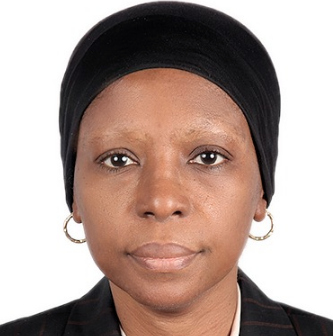The Pension Reform Act 2004 was one of the most important legislations of the last two decades. It completely transformed, the then, stagnant pension industry that catered for only a minority of employees into a vibrant and growing industry for all Nigerians. From modest beginnings in 2005, the industry has grown to be an important driver of savings and investments in Nigeria, with positive impact on jobs and economic growth.
The Pension Reform Act 2004 introduced the Contributory Pension Scheme under which both employer and employee contribute to the employee’s pension. The Pension Reform Act 2004 was subsequently repealed by the Pension Reform Act 2014 (PRA 2014), which introduced a number of improvements such as increasing the contribution from 15% to 18% of employees’ salaries. The Act covers both public and private sector employees. However, most States are yet to commence full implementation of their own pension laws that conform with PRA 2014.
In addition to the regulator, National Pension Commission (PenCom), the industry has grown to twenty-two Pension Fund Administrators (PFA), six Closed Pension Fund Administrators (CPFA) and four Pension Fund Custodians (PFC). Since its creation, PenCom has been staffed by competent personnel and management, that have managed the industry exceptionally well. PenCom has also eschewed the limelight and regulatory activism, although it has zero tolerance for regulatory infractions.
PFA’s open Retirement Savings Accounts (RSA) for employees, invest the pension contributions and pay benefits to RSA holders upon retirement. CPFAs are the pension schemes of the private sector prior to the introduction of the Contributory Pension Scheme under the Pension Reform Act 2004. CPFAs are exclusively for the employees of the sponsoring firms. However, the PRA 2014 has foreclosed new entrants into a CPFA. No new CPFA licences will be issued and all new employees of current CPFA firms can no longer join the company scheme, but are required to open an RSA with a PFA of their choice.
Advertisement
The PFCs, on the other hand, are responsible for the custody of pension assets on behalf of contributors. The PFCs receive the contributions and carry out transactions such as investing the pension funds and payment of benefits as instructed by the PFAs/CPFAs. This separation of PFA functions from custody of assets improves security of assets, eliminates potential for abuse by the PFAs and reduces the risk of loss of assets due to bankruptcy of the PFA. All PFCs are required to be owned by a financial institution licensed by the Central Bank of Nigeria.
Pension fund assets have been growing every year since the commencement of the implementation of the Contributory Pension Scheme. At the end of 2017, three years into implementing the new pension scheme, pension assets rose to N815 billion, representing 2.4% of nominal Gross Domestic Product (GDP). Ten years later, that is at the end of 2017, pension assets have grown to N7.5 trillion representing 6.6% of nominal GDP. By the end of 2020, pension assets have grown to N12.3 trillion, representing 8% of nominal GDP. This healthy growth was as a result of growth in number of RSA holders, increase in contributions and returns from the investment of assets.
The number of RSAs have also grown every year, with 9.27 million RSA holders at the end of 2020. However, there is still room for significant growth given Nigeria’s labour force is estimated at more than 80 million by the National Bureau of Statistics. It is this potential that motivated PenCom to launch the Micro Pension Plan (MPP) in 2019. The MPP enables the self-employed to enrol into the pension scheme and make flexible pension contributions through any of the twenty-two PFAs. The frequency of contributions and amount contributed are entirely at the discretion of the holder of the MPP. The MPP also allows the holder to withdraw up to 40% of the amount contributed at any time, to enable the holder meet financial needs. The remaining 60% is available upon retirement. The MPP though has not grown as fast as hoped, with only N75 million out of the N12.3 trillion of assets at the end of 2020 held by MPP holders. Clearly, more needs to be done by PenCom to increase awareness of the MPP and its benefits.
Advertisement
A useful feature of the Contributory Pension arrangement is that employees can also make voluntary contributions in addition to the 18% mandated by law. All voluntary contributions are deductible for tax purposes and are thus a great opportunity to save in a tax-efficient manner. Voluntary contributions can be withdrawn anytime, however, tax is payable if withdrawal is within five years of making the voluntary contributions.
Another major advantage of making additional voluntary contributions is that it will enable long-term compound growth of savings. This is especially beneficial for young employees with lower pay but decades of employment ahead. The additional voluntary contributions, no matter how small, will grow into something significant thanks to the power of compounding. For example, an additional N10,000 voluntary monthly contribution over 20 years yielding 10% per annum will result in final savings of N7.67 million. Meanwhile, N20,000 voluntary monthly contribution over 10 years at the same 10% will result in final savings of N4.15 million. Although in both cases the same N2.4 million was contributed, the power of compounding means starting early with a smaller amount yielded an extra N3.5 million.
Furthermore, with the average pension savings per contributor at only N1.33 million as at end 2020, additional voluntary contributions can be used by employees as a quick and effective way to increase their retirement pots.
The creation of a vibrant pension industry has benefited the economy significantly as there is a strong link between savings and investments. Nigeria is in critical need of funds to drive economic growth and the pooling of savings in to pension assets has had a positive impact, by increasing the funds available for investment in fixed assets such as infrastructure and machinery.
Advertisement
The bulk (66%) of the N12.3 trillion in pension assets, at the end of 2020, was invested in Federal Government securities, providing the Federal Government with low-cost long-term funds to implement its capital budget. PFAs also invested in companies listed on the Nigerian Stock Exchange, with 7% of funds invested at the end of 2020. In addition to providing stable ownership in key firms, PFAs also improve corporate governance in listed firms they invest in, this is due to their collective investing power, which they can use to enforce best practice in corporate governance. Furthermore, PFAs invested 6.8% of pension funds, as at end of 2020, in private sector corporate bonds, providing the firms with long-term cheap funding to finance growth.
Although the pension reform has been beneficial to the economy, more could still be achieved especially in improving compliance by State Governments. Despite the benefits of moving to Contributory Pension Scheme, State Governments have been slow to adopt the Scheme. Furthermore, where the Schemes have been adopted, the States have not been diligently making the required contributions. According to PenCom report as at end of 2020, only Lagos, Ondo and FCT are in full compliance with their own State laws pertaining to pensions. This low level of compliance is detrimental to employees and reduces confidence in the Contributory Pension Scheme. Nigeria Labour Congress should consider putting pressure on State Governments to comply with their own pension laws, as this is of significant benefit to their members.
Another area of improvement is to increase awareness of the Micro Pension Plan. PenCom should consider partnering with unions, such as National Union of Road Transport Workers, and Non-Governmental Organisations, such as the National Council of Women Societies, Jam’iyyar Matan Arewa and Rice Farmers Association of Nigeria, to encourage their self-employed members to enrol into the Micro Pension Plan.
PenCom should also continue to ensure compliance by PFAs with its regulations on investment of pension fund assets. The Commission introduced the Multi Fund structure in 2017, which allowed PFAs to create four different funds based on age and risk tolerance of contributors. Nevertheless, safety of contributors’ funds should continue to be the guiding principle for investment of assets. Pressure groups such as real estate developers, private equity firms and even government will continue to lobby for the investment guidelines to be modified to make it easier for PFAs to invest in riskier assets or invest outside the country or in foreign currency assets. PenCom should resist such pressure and should continue to be guided by sound pension funds investment practices in developing the regulations on investment of pension funds.
Advertisement
To conclude, the pension industry has been a key driver of savings and investments and has contributed positively to the growth of the Nigerian economy and will continue to do so. PenCom is encouraged to do more to increase awareness of the Micro Pension Plan for the self-employed. As a regulator of the pension industry, PenCom, is a rare beacon among regulators and has been carrying out its functions competently with little fanfare to the satisfaction of all. Other regulators could do well by emulating PenCom.
Advertisement
Views expressed by contributors are strictly personal and not of TheCable.
Add a comment







